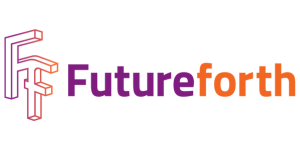How to avoid the wrecks in a fast-growing company
The Nice Method training for fast-growing companies was developed to improve your company culture and increase employee retention. When communication is faltering, costly mistakes happen. We teach you and your team how to avoid the wrecks.
Nice Method: Repetition
“Repetition is the mother of learning, the father of action, which makes it the architect of accomplishment. ”
Author and Ph.D. licensed psychologist Gretchen Schmelzer writes that repetition creates long-term memory by eliciting or enacting strong chemical interactions at the synapse of your neuron (where neurons connect to other neurons). Repetition creates the strongest learning—and most learning—both implicit (like tying your shoes) and explicit (multiplication tables) relies on repetition.
Being sure we have received and understood the information at work is paramount. One way we teach team members is to run through an exercise using “So what you’re saying is…” and “Is that what you’re saying?” to encourage everyone to repeat the information verbally. Doing so helps you remember and avoids the wrecks caused by misunderstanding the details.
Visual Cues serve as reminders of information too.
I once assisted an entire television network rebrand. One of the steps in doing this successfully was ensuring that each of the twelve affiliate stations placed a coffee cup with the new logo and a placemat on each desk on the day the rebrand took place. The placement included the new messaging and vision of the company, so each employee was reminded that day. Just glancing at the coffee cup logo reminded each person of the network's new direction. These items served as repeated vital information to help everyone remember.
Nice Method: Setting Standards
“The quality of a leader is reflected in the standards they set for themselves. ”
I live and work by my own standards, which significantly helps how I communicate with my team. These standards can be set for yourself and your organization too. For example, using the 3 Email Rule, we learn that rather than sending the fourth email about a specific project, it’s best to walk to the person’s office, video chat, or pick up the phone and speak directly with that person. I encourage teams to use the same rule when texting one another.
Be careful about opening too many lines of communication. While Slack and messaging services can be handy for teams, if you open another channel, it has to be managed effectively. You might have to send the same message in multiple places to ensure everyone receives it. It also means critical information can be missed if one of the channels gets missed.
FAQs, please.
We teach leaders to use internal and external FAQs to help answer those frequently asked questions. This prevents confusion and saves time going back and forth. For inspiration, you can look at fellow fast-growing technology companies like Wheelhouse, RisingStar, LEK Technology Consultants, and Shopify.
FAQs are just one example of how we can teach you to KISS (no, not that type of kissing). We focus on the classic, Keep It Simple, Silly.
Setting expectations means effective time blocking and productivity. It means guarding your hours of deep work against distraction and ensuring you allocate adequate time to tending to your team members and colleagues.
Nice Method: Available
“Honest and openness is always the foundation of insightful dialogue. ”
Encourage discourse and constructive feedback from your team members. Set your chat status to available and open your office door to encourage your team to feel comfortable speaking with you.
One of my favorite examples is leaders who hold “Ask Me Anything Coffees.” During this allocated time each day, your staff and colleagues are encouraged to join you for coffee and ask questions. Who doesn’t love coffee?
Depending on the location of your office, walking meetings are a wonderful way to encourage casual conversations and enjoy your team members more deeply because there is life outside your walls. Recognizing this, practicing empathy, and doing everything possible to foster employee friendships is important.
The Nice Method
Step 1. Hear Your Team
Step 2. Avoid the Wrecks
Step 3. Life Outside Your Walls 👈

